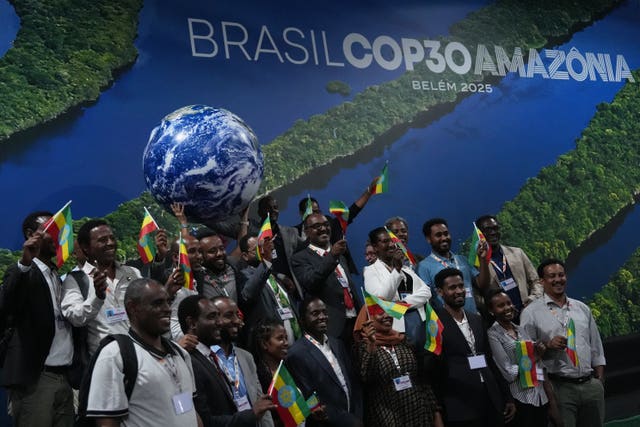Climate change continues to top headlines, and the recent conclusion of the COP30 conference held in Belem, Brazil, marks another step in the journey toward global consensus on environmental action. After weeks of intense negotiations, delegates from around the world walked away with a deal aimed at navigating the complexities of climate adaptation, though it stops short of making a robust commitment to phasing out fossil fuels like oil, coal, and gas.
While the consensus reached at COP30 has been met with a mix of hope and criticism, many experts view it as a necessary compromise amid challenging global dynamics. This year’s discussions were punctuated by late-night meetings and a determination to find a path forward, even if it wasn’t everything activists and scientists envisioned. “The alternative to this deal would have been no decision at all, which could have led to dire consequences,” stated Palau Ambassador Ilana Seid, chair of the small island nations coalition.
UN Secretary-General Antonio Guterres emphasized the importance of unity in tackling climate issues, stating that COP30 represents a collective effort to confront the challenges that no nation can solve in isolation. However, he acknowledged the gap between current commitments and the urgent action required by scientists: “I cannot pretend that COP30 has delivered everything that is needed.”
Countries like Sierra Leone highlighted the importance of translating promises into action. Environment Minister Jiwoh Abdulai expressed cautious optimism, noting that while the deal may not fulfill all of Africa’s requests, it indicates progress. “It’s crucial to ensure these discussions lead to real projects that protect lives and livelihoods across the continent,” he remarked.
In contrast to the challenging atmospheres of previous conferences, this year’s dialogue showcases a persistent dedication to collaboration. Figures such as former Irish president Mary Robinson celebrated the significance of countries coming together even amid global political turbulence.
As the COP30 negotiations laid the groundwork for future discussions, Brazil’s leadership will play a critical role in maintaining momentum. The conference may not have checked every box for climate activists, but it certainly opened doors for ongoing dialogue and action leading up to next year’s gathering. In the ever-evolving landscape of climate politics, the hope is that countries will build on this progress, turning discussions into impactful results.
While there’s more work to be done, this conference serves as a reminder that countries can unite for the greater good, fostering international cooperation for the climate. With new projects on the horizon, a stronger and more resilient world may just be within reach.
#WorldNews #Environment



